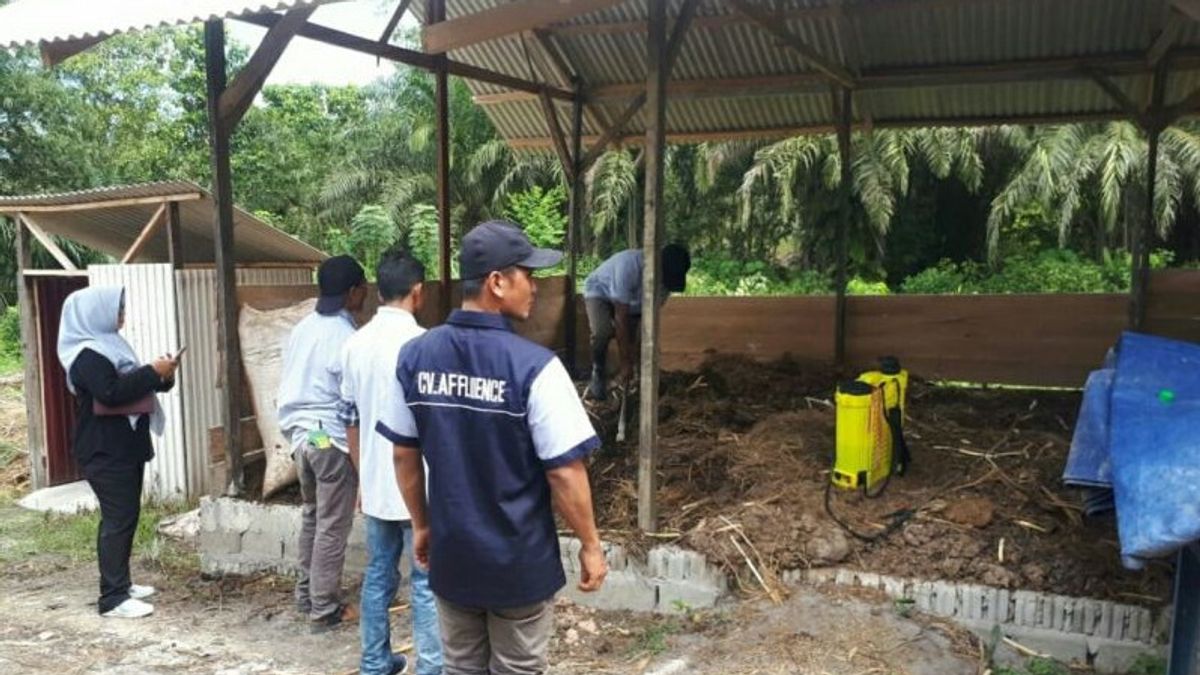JAKARTA - Professor of IPB University, Iswandi Anas Chaniago said, 72 percent of agricultural land in Indonesia is currently "sick" due to lack of organic matter.
This condition is caused by the use of chemical fertilizers which is still very high.
Iswandi said that in the 1960s, soil in Indonesia was still good because the organic content was still high, so that with the addition of chemical fertilizers, plant growth doubled.
"But human nature wants to simply prefer Urea or SP instead of having to carry so much organic fertilizer, eventually the organic fertilizer is abandoned, so that over time the soil is damaged," said Iswandi, quoted from Antara, Saturday, May 28.
Iswandi said that in 1930-1950 Java Island was still dominated by very high soil organic matter content, but in 1960-1970 most of the organic matter content was less than 1 percent.
In fact, in 2010 it was lower so that now the soil is damaged and no longer friable.
Therefore, his party encourages the use of organic fertilizers, especially since Indonesia has many sources of organic fertilizer materials, both from livestock waste, agriculture, fisheries, landfills (TPA), sugar factories, and industrial forest plantations (HTI).
According to Iswandi, balanced fertilization between organic fertilizers and chemical fertilizers has a very important role to answer the challenge of increasing national rice and corn production in a sustainable manner.
"So, actually organic fertilizers and chemical fertilizers are not to be contradicted, but to be used together. Organic fertilizers are complemented by chemical fertilizers," he said at the webinar with the theme "Answering the Challenge of Increasing National Rice and Corn Production with Balanced Fertilization".
In addition to encouraging the use of organic fertilizers, the Expert Council of the Indonesian Organic Agriculture Society (Maporina) Ina SRI also suggested starting to reduce the dose of chemical fertilizers.
According to him, the benefits of organic fertilizers are to improve the physical, chemical and biological properties of the soil as a source of nutrients, reduce soil compaction and increase the activity of soil microbes and earthworms.
Head of Promotion Uralkali, a producer of potash (potassium) fertilizer from Russia, Maxim Bratchikov explained, Russia is one of the world's largest KCl producers with production reaching 13.6 million tons in 2020.
Meanwhile, Uralkali is the main and largest producer of KCl in Russia with a production of around 12.3 million tons in 2021 which is supplied to 70 countries in the world.
He said, KCl fertilizer functions to increase plant retention against drought, toxins, and pests, as well as improve fruit quality. The use of KCl in rice increased seed production by 19 percent.
The English, Chinese, Japanese, Arabic, and French versions are automatically generated by the AI. So there may still be inaccuracies in translating, please always see Indonesian as our main language. (system supported by DigitalSiber.id)








